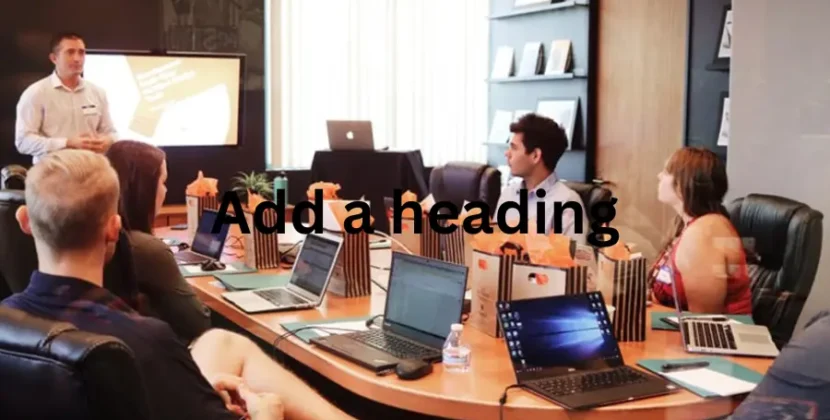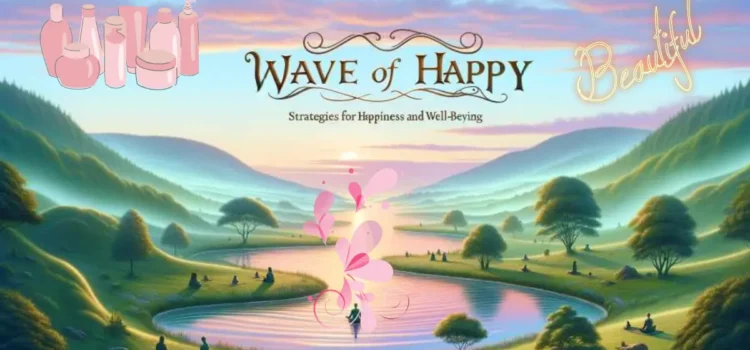
Introduction wave_of_happy_
In today’s fast-paced, modern society, contentment is often impossible due to the constant pursuit of financial gain and success. These moments of perfect alignment are called the “Wave_of_Happy_.” Understanding these waves of happiness and nurturing them can complement and satisfy our life. What is the wave_of_happy_ and how can we create more of these wonderful moments?
What is Wave_of_Happy_ and Why is it Important?
The term Wave_of_Happy_ is used to describe fleeting, but powerful moments of happiness and pleasure that happen throughout our daily lives. Waves of happiness can be created by a variety of circumstances, including achieving a long-term goal, spending time with loved ones, or simply admiring the sunset. These moments, although fleeting, have a significant impact on our modern well-being.
Happiness is not just a great feeling. It’s essential to our mental, emotional and physical health. According to this evaluation, happier people are more resilient and have stronger immune systems. They also live longer. Happiness also promotes social connections that are beneficial, while improving our ability cope with stress. In order to live a healthy and fulfilling lifestyle, it is important to recognize and nurture the Wave_of_Happy_.
How to Ride the Wave_of_Happy_
Riding the wave_of_happy_ is about actively seeking experiences that will make us happy and recognizing those factors. Here are some strategies that will help you ride the waves of happiness:
- Mindfulness and Presence: Being aware is the best way to improve your mood. It is about appreciating and letting go of judgments in the present moment. Deep breathing exercises, mindfulness walking, and meditation can help develop awareness.
- Practice gratitude:Expressing gratefulness every day can make you happier. You can change your perspective by writing down your blessings every day in a gratitude journal.
- Chasing your Passions:Happiness comes in waves when you do what you love. You can improve your well-being by engaging in a hobby you enjoy, such as volunteer painting, a new challenge or an interest.
- Strengthening relationships:Social connection is critical for happiness. Spend time strengthening your relationship with family, friends, and your network. Make memories that will last a lifetime, help someone else, and exchange experiences.
Understanding Wave_of_Happy_
It’s important to understand happiness before we can fully grasp the dynamics of ” wave_of_happy_“. Happiness can be defined as an emotion that is complex and multifaceted. It’s often described as a feeling of satisfaction and fulfillment, accompanied by positive feelings. Happiness is interpreted differently by different cultures and people, which makes it an interesting subject to study.
Psychologically, happiness can be viewed as subjective well-being. This includes both cognitive evaluations about life satisfaction and positive emotional experiences. This perspective stresses the importance of external and internal factors in determining happiness levels.
The Science Behind Wave_of_Happy_
Behind every moment of happiness and joy, there is a complex interaction of neurophysiological processes. Dopamine and Serotonin, neurotransmitters that regulate mood and emotions, play a crucial role. Imbalances are linked to mood disorders such as depression and anxiety.
Research suggests that happiness can also be affected by personal decisions and environmental factors. Understanding the neurobiological mechanisms that underlie happiness can help individuals adopt strategies to improve their well-being, and experience more Wave_of_Happy_.
Exploring the “Wave_of_Happy_” Phenomenon
This concept refers to the transient moments that are punctuated by intense joy and euphoria. The waves of happiness can be triggered in many ways, such as achieving an important goal, spending time with family, or just enjoying the beauty of nature.
It is important to identify these triggers, and to understand how to cultivate and sustain them. This will help you experience more frequent and lasting Wave_of_Happy_. We can easily ride the waves if we pay attention to our joys and actively seek out activities that lift our spirits.
How Social and Environmental Factors Can Impact People’s Levels of Happiness
Happiness can be influenced not only by personal factors, but also by social and environmental conditions. These broader factors have a direct impact on our happiness.
- Social Support System: Societies that have strong social support systems are happier. Individuals benefit from policies that improve healthcare, education, and social welfare.
- Economic stability: Financial stability is important to happiness. Societies that have a lower income gap and more economic stability are happier.
- Environmental Quality:Accessibility to green spaces, clean, fresh air and a healthy environment are all factors that contribute to our happiness. Priority-based planning in urban areas can improve the quality of life for citizens.
- Cultural normsCultural attitudes toward pride and well-being influence how humans perceive pleasure. Societies with a higher level of happiness tend to prioritize stability in life, socializing, and enjoying themselves.
Environmental Influences on Happiness
Our happiness is also influenced by the environments we inhabit, such as where we work and play. Urban dwellers might experience the stressors of city life such as noise pollution or overcrowding while rural residents may have greater access to nature, and enjoy a slower pace.
It is important to design our environment to encourage positive experiences. Small changes, such as decluttering your home, going outdoors more often, or surrounding yourself with positive artwork and music can make a big difference to our overall well-being.
FAQs
What is a “wave_of_happy?”
The “wave_of_happy_”, or the period of happiness that flows easily, makes everything brighter and enjoyable. This is a metaphor that represents sustained happiness and contentment.
How can mindfulness and mediation help you to be happy?
Meditation and mindfulness help you focus your thoughts, reduce stress and appreciate the moment. They also enhance your sense of overall well-being.
Why is it important to have relationships for happiness?
Strong relationships can provide emotional support, love and a feeling of belonging. These are all important for emotional wellbeing and to help you cope with life’s challenges.
What is the impact of gratitude on wave_of_happy?
By practicing gratitude, you shift your focus away from what is lacking to what is abundant in your life. This improves your mood and outlook on life.
What I eat can affect my happiness.
A healthy gut and brain connection can help you have a happier, healthier mind.
Conclusion
The quest for happiness can be a long journey, full of ups anddowns. Understanding the Wave_of_Happy_, and actively searching for conditions that make us happy can help us improve and live a fuller life. Form strong bonds and embrace mindfulness and gratitude. Seek professional help when needed. Remember that happiness can be a series of waves we ride with elegance and purpose.
For More Information Visit Our Homepage:










